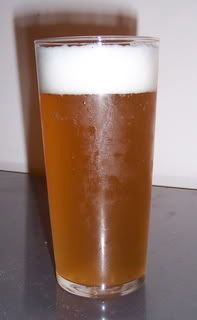Funkenjaeger
Well-Known Member
I've been talking about the late extract addition method with the guy at the LHBS. He'd never heard of this method. I've been using it for quite a few batches now, especially lighter brews like hefeweizens, to keep them light. He did not seem to think it was a very good idea, which was quite surprising to me because I don't think I've heard anyone say anything negative about late extract addition to this point, so I wanted to dig a little deeper.
He said that he thought that only boiling most of the extract for 15 mins or so would cause problems - that the full boiling time was needed to properly coagulate and precipitate undesirable proteins out of the wort, and that the late extract addition would end up affecting the fermentation as a result, leaving lots of unfermentables and other undesirable things in there.
My thinking was that since malt extract is made by mashing grains and then boiling the resulting wort down to concentrate it into extract, that much of the 'undesirables' would have already been coagulated/driven off/etc before you even got the extract. But, I don't know how the low-pressure boiling environment they use to reduce extract affects this. I suppose part of my reason for thinking this was that I thought all-grain batches had much more significant hot break than extract batches (thus a lot more proteins and junk that need to be boiled), which I very well may be wrong about.
So I guess the real questions are (with all issues of hop utilization aside):
1) is there enough protein/etc in malt extract that it is very detrimental to not boil it long enough?
2) does most of the coagulation/etc occur during the hot break, or does it mostly occur as a slow process throughout the boil?
3) if it doesn't happen all at once, how long a boil is "long enough"? Is the 10-15 minutes normally used with late extract additions insufficient? Does it need to be the full 60+ minutes?
So I'd be quite interested in hearing any other opinions on the matter.
He said that he thought that only boiling most of the extract for 15 mins or so would cause problems - that the full boiling time was needed to properly coagulate and precipitate undesirable proteins out of the wort, and that the late extract addition would end up affecting the fermentation as a result, leaving lots of unfermentables and other undesirable things in there.
My thinking was that since malt extract is made by mashing grains and then boiling the resulting wort down to concentrate it into extract, that much of the 'undesirables' would have already been coagulated/driven off/etc before you even got the extract. But, I don't know how the low-pressure boiling environment they use to reduce extract affects this. I suppose part of my reason for thinking this was that I thought all-grain batches had much more significant hot break than extract batches (thus a lot more proteins and junk that need to be boiled), which I very well may be wrong about.
So I guess the real questions are (with all issues of hop utilization aside):
1) is there enough protein/etc in malt extract that it is very detrimental to not boil it long enough?
2) does most of the coagulation/etc occur during the hot break, or does it mostly occur as a slow process throughout the boil?
3) if it doesn't happen all at once, how long a boil is "long enough"? Is the 10-15 minutes normally used with late extract additions insufficient? Does it need to be the full 60+ minutes?
So I'd be quite interested in hearing any other opinions on the matter.




